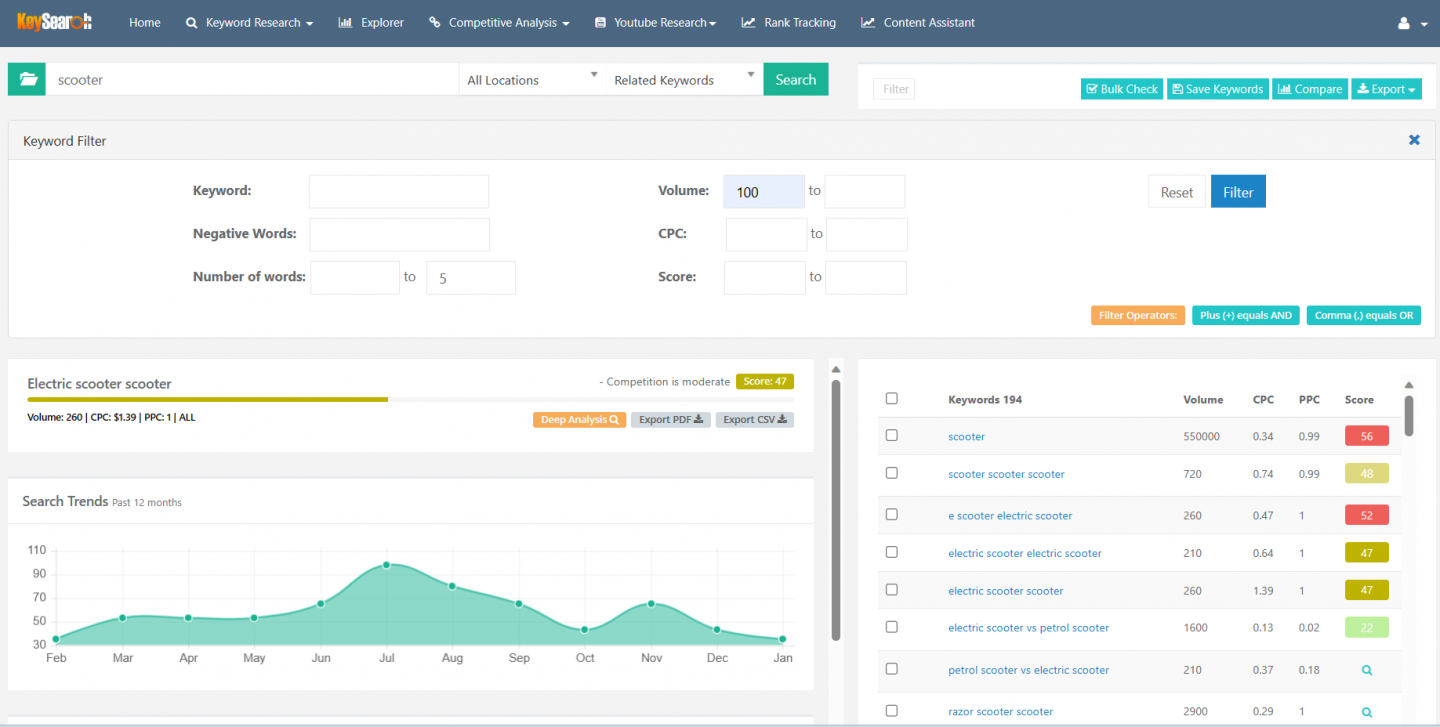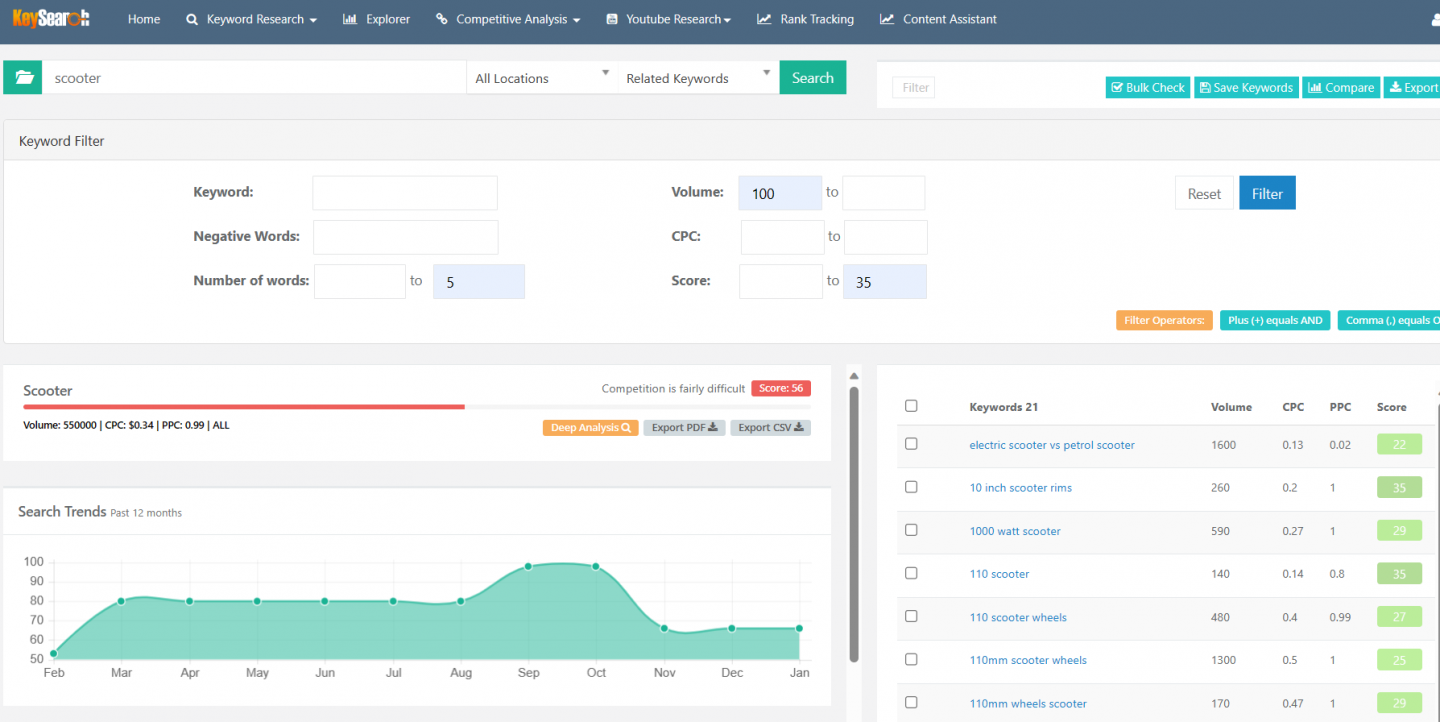
So, you want to attract traffic to your blog without battling it out against your competitors. How do you find those easy-to-rank keywords that bring in visitors without the headache of fierce competition? Let’s break it down using Keyserch with a keyword example: scooter.
Trying to rank for the obvious term ‘scooter’ is challenging. Let’s explore keywords that bring in traffic and help us rank better.
Terms You Need to Know
Using this keyword tool, here are the terms you need to know:
Search Volume: Shows how many searches a keyword gets on Google each month.
Score: Indicates how tricky it is to rank for that keyword (keyword difficulty score). Blue being the easiest and red the hardest.
CPC (Cost Per Click): Reveals what advertisers will pay to display their ads when someone searches for that keyword.
Step 1: Load up Keysearch with your term ‘scooter’ and, you get 700 keyword suggestions. As you can see that the term ‘scooter’ is hard to rank for, as indicated in red.

Now, use the filter at the top of the page to eliminate noise by focusing on keywords with a search volume of at least 100. Adjust this based on your niche—perhaps aiming for 500 or as low as 50.
Step 2: Drill down further by filtering out keywords with fewer than 5 words. Why? Because we love long-tail keywords. Shorter phrases are tougher to rank for, and longer ones give us a better shot at landing on that prized first page of Google.
After applying these filters, I’m left with 194 promising keywords. You can select all the keywords and click the ‘Bulk Check’ button at the top of the page to get SEO difficulty scores for the remaining keywords. Additionally, click ‘Score’ to sort them from most difficult to least difficult and vice versa.

Step 3: Refine your list even more by filtering out keywords with a difficulty score higher than 35. Why 35? Because we want the easiest options.
Now, I’ve got a curated list of 21 keywords that should be relatively easy to rank for in a competitive niche like scooters.

In a nutshell, armed with Keysearch and a strategic mindset, finding those easy-to-rank, long-tail keywords is a simple process.
Keysearch is available in Starter and Pro plans payable either monthly or yearly. Get 20% off your plan using my discount code: KSDISC
I recommend starting with Keysearch Starter Monthly to get a feel for the tool and determine if it suits your needs.



